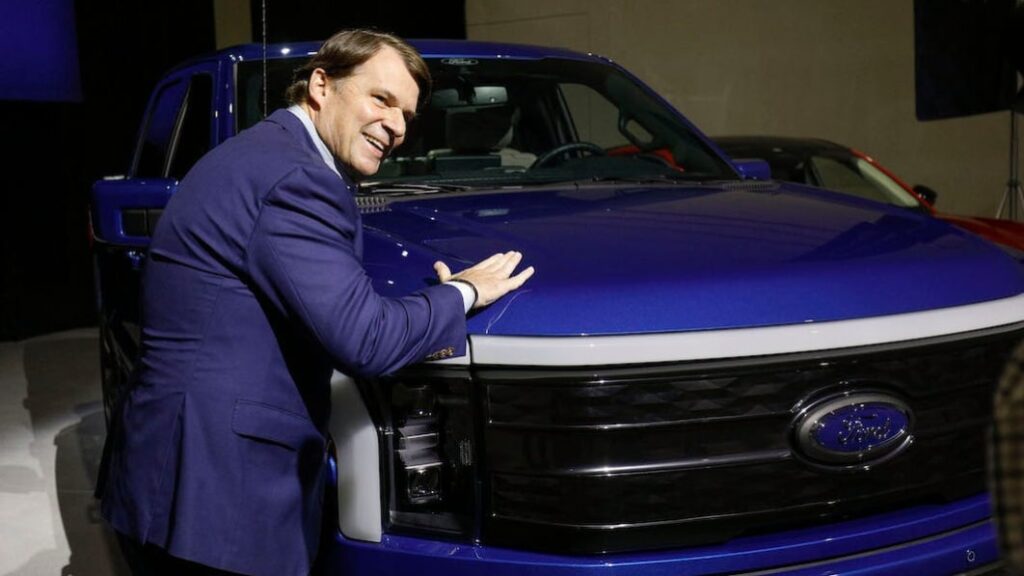Largest U.S. automaker loan since 2009 is meant to help Ford beat China on EVs

Ford CEO Jim Farley with an
F-150 Lightning truck.
Bill Pugliano/Getty Images
The U.S. is lending Ford $9.2 billion to build battery plants in Tennessee and Kentucky.
The sum from the Loan Programs Office is the biggest to an automaker since the 2009 bailouts.
It’s also three times the loan extended to General Motors for battery plants last year.
The U.S. government is lending $9.2 billion to Ford for three battery plants in a sign of the Biden administration’s desire for America to become a leading EV player.
The Department of Energy’s Loan Program Office announced Thursday it was financing the BlueOval SK joint venture involving Ford and South Korean battery manufacturer SK On for one factory in Tennessee and two in Kentucky.
The loan for the factories, which are already under construction, is the biggest handed out to a carmaker since the $80 billion bailout loans of 2009, and is the latest step in the US’s drive for energy security amid rising tension with China.
The Energy Department said the two factories would create 5,000 construction jobs and eventually employ about 7,500 people.
It said the factories would produce 120 gigawatt hours of battery capacity annually and displace 455 million gallons of gasoline a year over the lifetime of the vehicles using the batteries.
The loan is more than three times the amount handed out last year to General Motors to build three battery factories.
It’s also 20 times the $465 million loan provided to Tesla by the Obama administration in 2010 to help complete its breakthrough Model S, which paved the way for its EV market leadership.
The loan is the latest step by the White House to on-shore production of crucial EV components amid rising geopolitical tensions, particularly with China. Chinese EV capabilities also appear to be overpowering the US.
In the final quarter of last year, China accounted for about 87% of lithium-ion battery imports to the US, according to analysis by S&P Global.
It’s also a sign of rising demand for EVs amid a wave of subsidies brought in by Biden under his Investing in America pledge for EVs to make up half of all new US vehicles sold by 2030. Demand for EVs has caught some manufacturers off-guard.
In December, Ford’s EV chief Darren Palmer told Insider that demand for the F-150 electric pick-up truck had been so strong that it decided to build a second factory next door.



